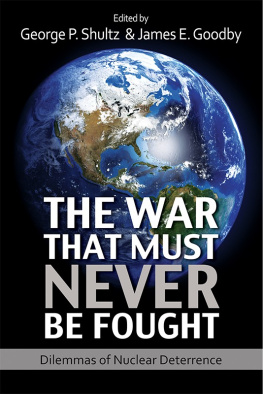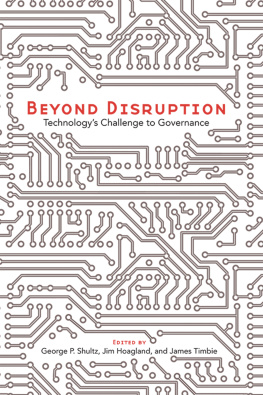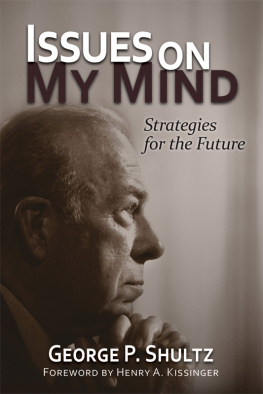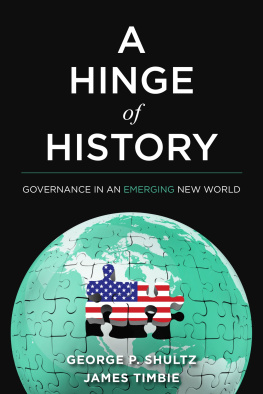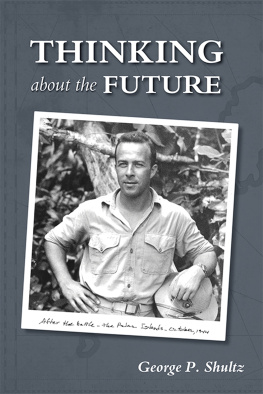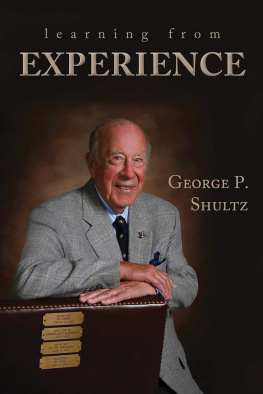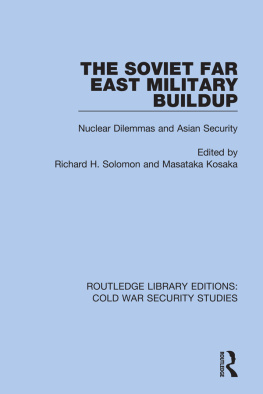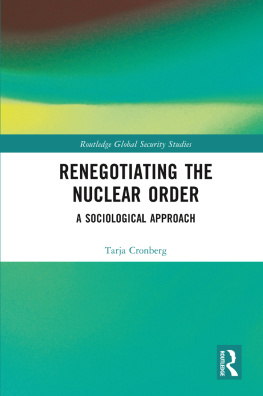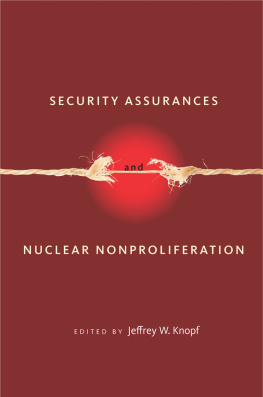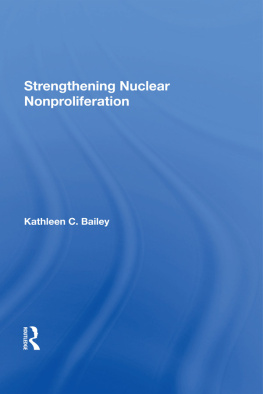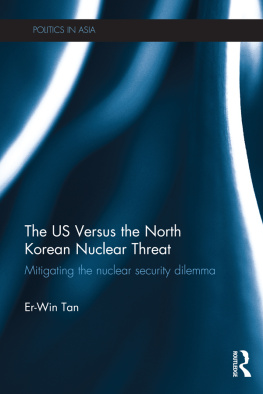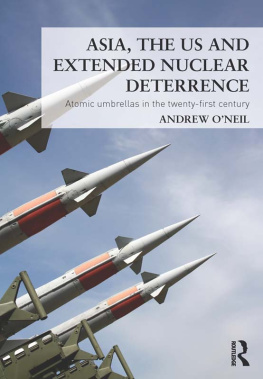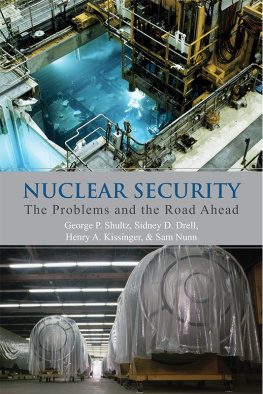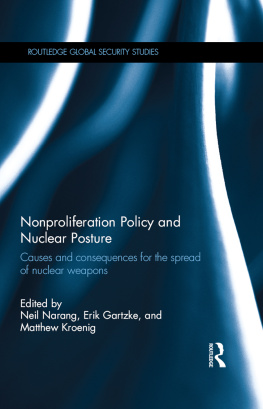Praise for The War That Must Never Be Fought
This important book is a collection of thoughtful papers written by a stellar cast of experienced students of todays dilemma posed by nuclear weapons and deterrence policy. Recognizing the unimaginable devastation to humanity and the planet we all inhabit in the event of a failure of this policy, either by deliberate action or human error, the authors add valuable insights into policies and initiatives that nations should pursue in a global effort to reduce existing dangers of entering into The War That Must Never Be Fought .
Sidney D. Drell is a senior fellow at the Hoover Institution at Stanford University and a professor emeritus of theoretical physics at Stanfords SLAC National Accelerator Laboratory, where he served as deputy director.
More than an assertion, The War That Must Never Be Fought calls for a robust public debate of the dilemmas of nuclear deterrence. It challenges us all to decide what kind of a world we want and to participate in getting there. The articles included provide a balanced and thoughtful catalyst for beginning that discussion.
William J. Perry was the 19th secretary of defense, and is a senior fellow at the Hoover Institution and the Freeman Spogli Institute of International Studies at Stanford University.
In 2007, I joined with George Shultz, Henry Kissinger, and Bill Perry in warning that unless urgent new actions are taken, the U.S. soon will be compelled to enter a new nuclear era that will be more precarious, psychologically disorienting, and economically even more costly than was Cold War deterrence. That new nuclear era is fast approaching. In this book, a talented group of global experts explores the role of nuclear deterrence in todays world. Can nations move together toward a new, safer, more stable form of deterrence with decreasing nuclear risks and an increased measure of security for all nations? The answers are varied and provide the reader with provocative arguments that should stimulate a much-needed debate. The bottom line, in my view, can be found in the warning given to us by President Reagan in his 1984 State of the Union message: A nuclear war cannot be won and must never be fought.
Sam Nunn is a former US senator, cochairman of the Nuclear Threat Initiative, and an Annenberg Distinguished Visiting Fellow at the Hoover Institution, Stanford University.
The Hoover Institution gratefully acknowledges
the following foundations for their significant
support of this publication:
T HE W ILLIAM AND F LORA H EWLETT F OUNDATION
T HE FLORA F AMILY F OUNDATION
Edited by
George P. Shultz and James E. Goodby
H O O V E R I N S T I T U T I O N P R E S S
STANFORD UNIVERSITY STANFORD, CALIFORNIA
The Hoover Institution on War, Revolution and Peace, founded at Stanford University in 1919 by Herbert Hoover, who went on to become the thirty-first president of the United States, is an interdisciplinary research center for advanced study on domestic and international affairs. The views expressed in its publications are entirely those of the authors and do not necessarily reflect the views of the staff, officers, or Board of Overseers of the Hoover Institution.
www.hoover.org
Hoover Institution Press Publication No. 658
Hoover Institution at Leland Stanford Junior University,Stanford, California 94305-6010
Copyright 2015 by the Board of Trustees of the
Leland Stanford Junior University
All rights reserved. No part of this publication may be reproduced, stored in a retrieval system, or transmitted in any form or by any means, electronic, mechanical, photocopying, recording, or otherwise, without written permission of the publisher and copyright holders.
For permission to reuse material from The War That Must Never Be Fought: Dilemmas of Nuclear Deterrence, edited by George P. Shultz and James E. Goodby, ISBN 978-0-8179-1845-3, please access www.copyright.com or contact the Copyright Clearance Center, Inc. (CCC), 222 Rosewood Drive, Danvers, MA 01923, 978-750-8400. CCC is a not-for-profit organization that provides licenses and registration for a variety of uses.
Hoover Institution Press has no responsibility for the persistence or accuracy of URLs for external or third-party internet websites referred to in this publication, and does not guarantee that any content on such websites is, or will remain, accurate or appropriate.
Cataloging-in-Publication Data is available from the Library of Congress.
ISBN: 978-0-8179-1845-3 (pbk. : alk. paper)
ISBN: 978-0-8179-1846-0 (e-pub)
ISBN: 978-0-8179-1847-7 (mobi)
ISBN: 978-0-8179-1848-4 (PDF)
Preface
George P. Shultz
The year 2015 is the seventieth anniversary of the first nuclear explosion. It took place at a desert test site at Alamogordo, New Mexico, on July 16, 1945. The city of Hiroshima was obliterated by an atom bomb on August 6, 1945, and Nagasaki was destroyed on August 9. I was a Marine Corps captain at the time, on a troop ship in the Pacific bound for the United States where we expected to regroup and return to the Pacific for the invasion of Japan. We heard about Hiroshima and then Nagasaki while on the ship. None of us had ever heard of an atom bomb or had any idea what it was. By the time we arrived in California the war in the Pacific was over. When I saw the photographs of the two cities I was shocked at the devastation from one bomb, and I realized that something entirely new had entered human history. Warfare would change. Some of the chapters in this book discuss the subsequent history, but I recall it this way:
At the outset of the nuclear age, the American strategist Bernard Brodie wrote that thus far the chief purpose of our military establishment has been to win wars. From now on its chief purpose must be to avert them. President Eisenhower followed that precept and cut the US defense budget, especially for ground forces, while building a modest nuclear deterrent force. The idea behind this was that war could be averted only by the certain inescapable power to inflict swift, and crushing retaliation, as Winston Churchill said. But Brodies and Eisenhowers premise was challenged as strategists, mostly American, debated how war could be averted when two bitter adversaries had large numbers of nuclear weapons. President Kennedy warned of a choice between holocaust and humiliation. He added scores of new ballistic missiles and built up US conventional forces.
After Kennedys success in resolving the Cuban Missile Crisis in 1962, the Soviet leadership forced Nikita Khrushchev to resign from his leadership position and adopted a massive nuclear buildup program. The numbers of nuclear weapons multiplied and the premise that war must be and could be averted by threatening nuclear retaliation had turned into a nuclear arms race. Each side claimed that it did not want war but could prevail if a nuclear war occurred.

